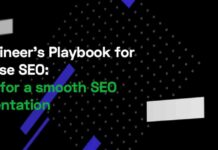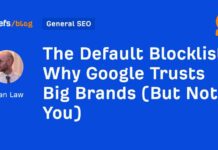In the ever-evolving digital landscape, the prevalence of AI-generated content has led to a shift in how Google and searchers filter information. Brands and publishers are now default blocklisted, requiring them to earn a spot on the allowlist through credibility and authenticity.
Google, faced with the daunting task of filtering out AI slop, has resorted to prioritizing big, trusted brands like Forbes and WebMD in search engine result pages (SERPs). These brands have seen a significant increase in organic pageviews, as Google finds it easier to police a few major content brands rather than numerous smaller ones.
UGC sites like Reddit and Quora have also benefited from this shift, with their built-in quality control mechanisms allowing Google to outsource the burden of moderation. By default blocklisting newer, smaller publishers and elevating established brands to allowlist status, Google aims to protect search experiences from the risk of AI-generated content.
As searchers become more skeptical of content, brands must go beyond traditional marketing strategies to earn trust in a trustless world. Newer brands must focus on creating credible, thoughtfully curated content that aligns with their business model and clearly demonstrates their motivations for publishing.
By being selective with content, avoiding spammy tactics, and showcasing real people behind the brand, companies can build credibility and earn a place on the allowlist. Utilizing Google’s gatekeepers, such as Reddit, and becoming a trusted gatekeeper for their audience can also help brands establish trust in a world inundated with AI-generated content.
In conclusion, the era of AI content generation has led to a default blocklist mentality where trust must be earned through genuine, high-quality content. Brands that focus on credibility, transparency, and authenticity can navigate this new landscape and earn the trust of both Google and searchers alike.























